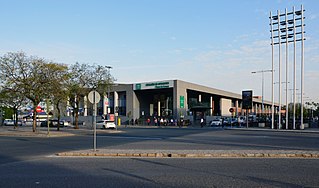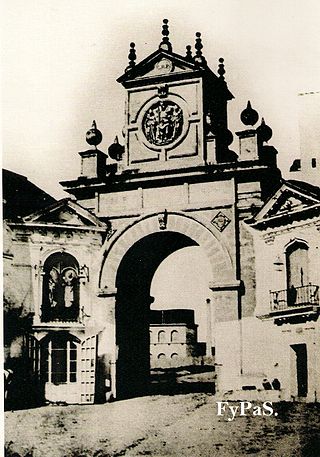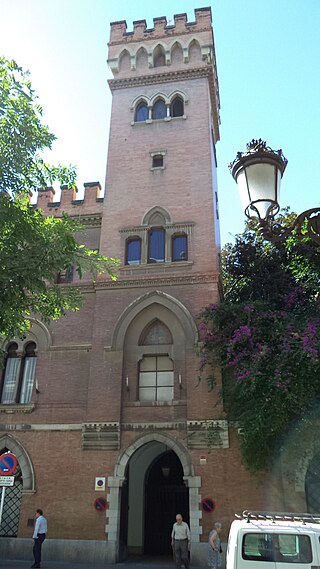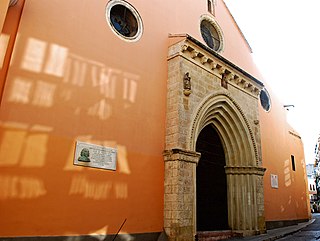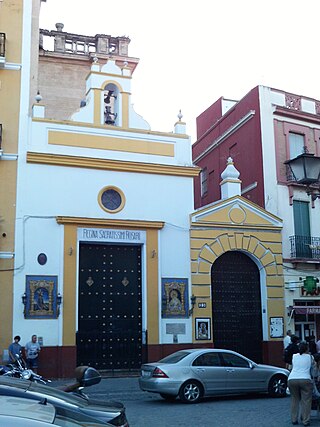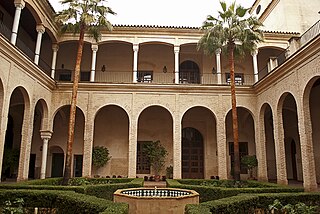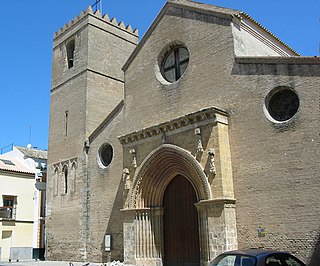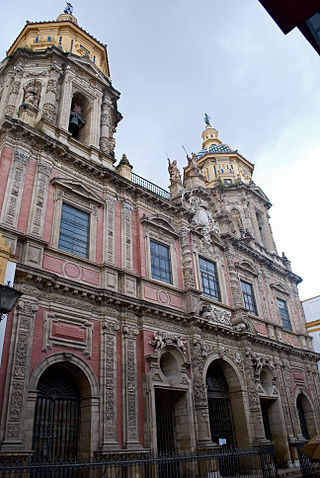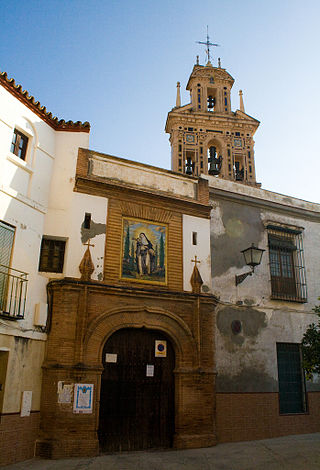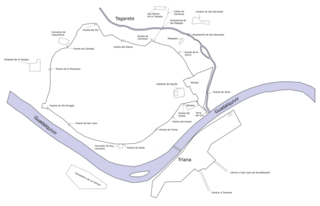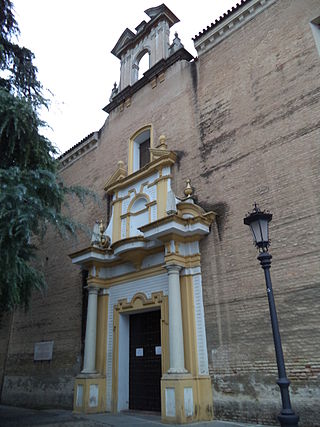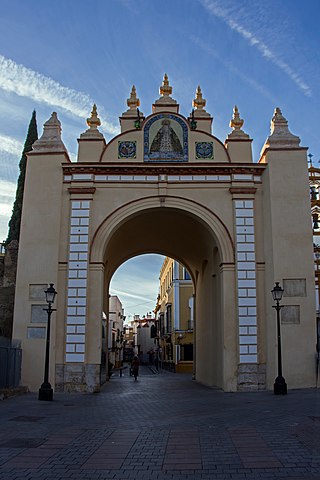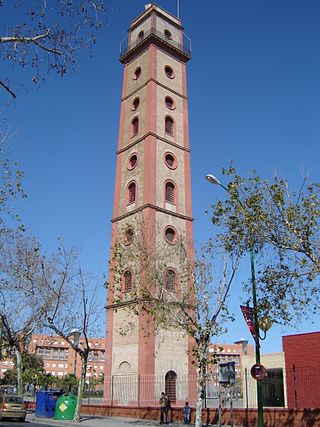Self-guided Sightseeing Tour #10 in Seville, Spain
Legend
Guided Free Walking Tours
Book free guided walking tours in Seville.
Guided Sightseeing Tours
Book guided sightseeing tours and activities in Seville.
Tour Facts
5.3 km
61 m
Experience Seville in Spain in a whole new way with our free self-guided sightseeing tour. This site not only offers you practical information and insider tips, but also a rich variety of activities and sights you shouldn't miss. Whether you love art and culture, want to explore historical sites or simply want to experience the vibrant atmosphere of a lively city - you'll find everything you need for your personal adventure here.
Activities in SevilleIndividual Sights in SevilleSight 1: Estación de Autobuses Plaza de Armas
Plaza de Armas is an international bus station of the city of Seville. It is located at the intersection of the avenue Cristo de la Expiración and Torneo St., in the district of Casco Antiguo. It was opened in 1992.
Sight 2: puerta Real
The Puerta Real, called until 1570 as Puerta de Goles, was one of the gates of the walled enclosure of the city of Seville (Andalusia). It was located at the confluence of the calles de Alfonso XII, Gravina, Goles and San Laureano, and today only is it a cloth of the wall on which it was based, in which there is embedded a stone that was part of the gate.
Sight 3: Palacio del Marqués de la Motilla
The palace of the Marquis of La Motilla appears in the heart of the historic centre of Seville as if it were a medieval construction, at the confluence of Calle Laraña with Calle Cuna in the Old Town. The project was carried out between 1921 and 1924 and was completed in 1931. The property, which was owned by the Marquis of Valencina y de la Motilla, was acquired by a businessman from Cordoba in 2022.
Sight 4: Iglesia de San Andrés
The church of San Andrés is a Catholic church that is the seat of a parish in Seville. It is located in the square of the same name. Its construction dates back to the fourteenth century and the architect who designed the project is unknown. Its basic style is Gothic-Mudejar, with Baroque-style reforms, carried out by the architect Pedro de Silva in the eighteenth century.
Sight 5: Capilla de Montesión
The Chapel of Our Lady of the Rosary, known as the Chapel of Monte-Sion, is a Roman Catholic church located on Calle Feria, Seville, Andalusia, Spain. It was built in a former Dominican convent. It is the canonical seat of the Brotherhood of Monte-Sion.
Sight 6: Palacio de los marqueses de la Algaba
The Palace of the Marquis of La Algaba is a historic building in the city of Seville, Andalusia, Spain. It is one of the best exponents of civil Mudejar architecture in the city. It houses the Mudéjar Art Center of Seville.
Sight 7: Iglesia de Santa Marina
The Church of Santa Marina is a Catholic parish in Seville. It is of Gothic-Mudejar architecture. It is one of the oldest churches in the city. Its construction dates back to around 1262. It is the canonical headquarters of the Brotherhood of the Holy Cross and the Holy Resurrection, which processions on Easter Sunday.
Sight 8: Iglesia de San Luis de los Franceses
The Church of Saint Louis of France, located in the historic district of Seville, Spain, represents an example of Baroque architecture in the 18th century. The church was designed by the architect Leonardo of Figueroa and constructed between 1699 and 1731 on behalf of the Jesuits. Following the expulsion of the Jesuits from Spain in 1835, it had different uses and was eventually deconsecrated. The building currently belongs to the Provincial Council of Seville.
Sight 9: Convento de Santa Isabel
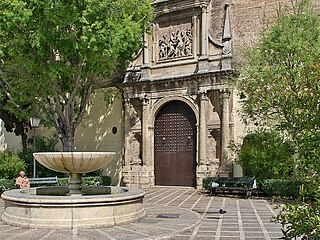
The convent of Santa Isabel is a convent of the Congregation of Philippian Religious Daughters of Mary Sorrowful that is located at number 2 Hiniesta Street, giving its south façade to the Plaza Santa Isabel, in Seville. It is located in the historic centre of the city of Seville and very close to another of the great Sevillian convents, the Convent of Santa Paula.
Sight 10: Convento de Santa Paula
The Convent of Santa Paula is a monastic monastery in Seville of nuns of the Order of San Jerónimo, listed as a historical monument. It is located in the historic centre of the city, behind the parish of San Marcos and very close to another of the great Sevillian convents, that of Santa Isabel. In the past it had an extensive land, mainly occupied by its orchard.
Sight 11: Córdoba's Gate
The Puerta de Córdoba is one of the ancient gates of the wall of Seville in Andalusia, Spain, located in the current Ronda Histórica.
Sight 12: Iglesia de San Hermenegildo
The Church of San Hermenegildo in Seville is a seventeenth-century temple in the northern part of the walls, next to the Puerta de Córdoba. In it there is a room where it is said that San Hermenegildo suffered imprisonment.
Sight 13: Puerta de la Macarena
The Puerta de la Macarena, also known as Arco de la Macarena, is one of the only three city gates that remain today of the original walls of Seville, alongside the Postigo del Aceite and the Puerta de Córdoba. It is located in the calle Resolana, within the barrio de San Gil, which belongs to the district of Casco Antiguo of the city of Seville, in Andalusia, Spain. The gate faces the Basílica de La Macarena, which houses the image of the Our Lady of la Esperanza Macarena, one of the most characteristic images of the Holy Week in Seville.
Sight 14: Torre de los Perdigones
The Torre de los Perdigones is a tower that was part of the old factory of "San Francisco de Paula", popularly known as "Fábrica de Perdigones", located on Resolana Street, in the San Gil neighborhood of Seville next to the Puente de la Barqueta, the main access to Expo'92.
Share
Disclaimer Please be aware of your surroundings and do not enter private property. We are not liable for any damages that occur during the tours.
GPX-Download For navigation apps and GPS devices you can download the tour as a GPX file.
